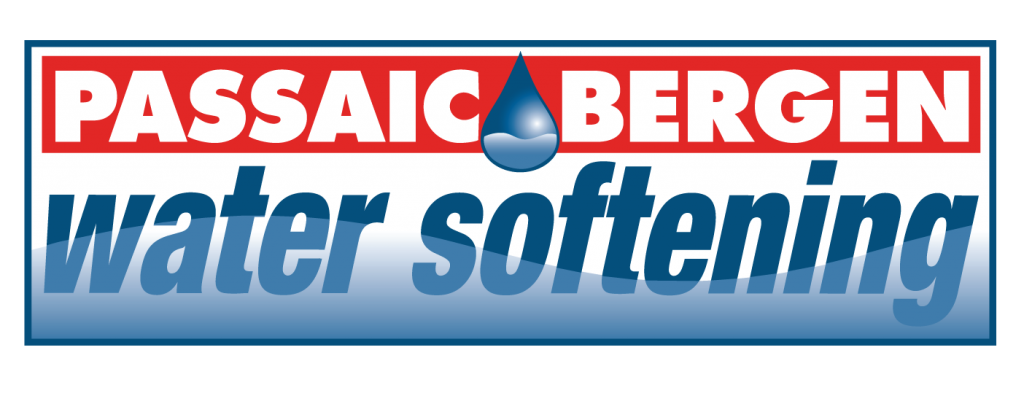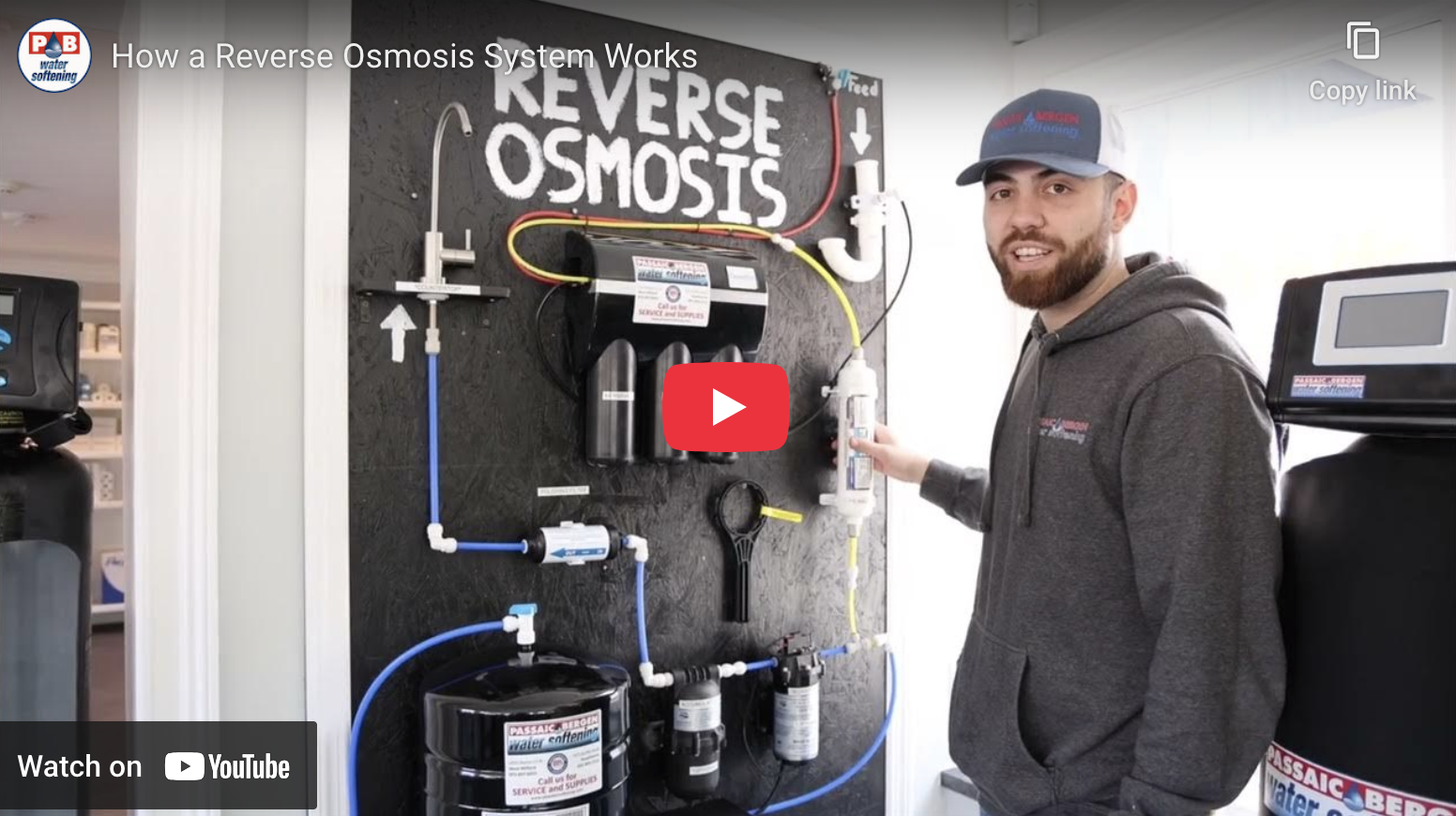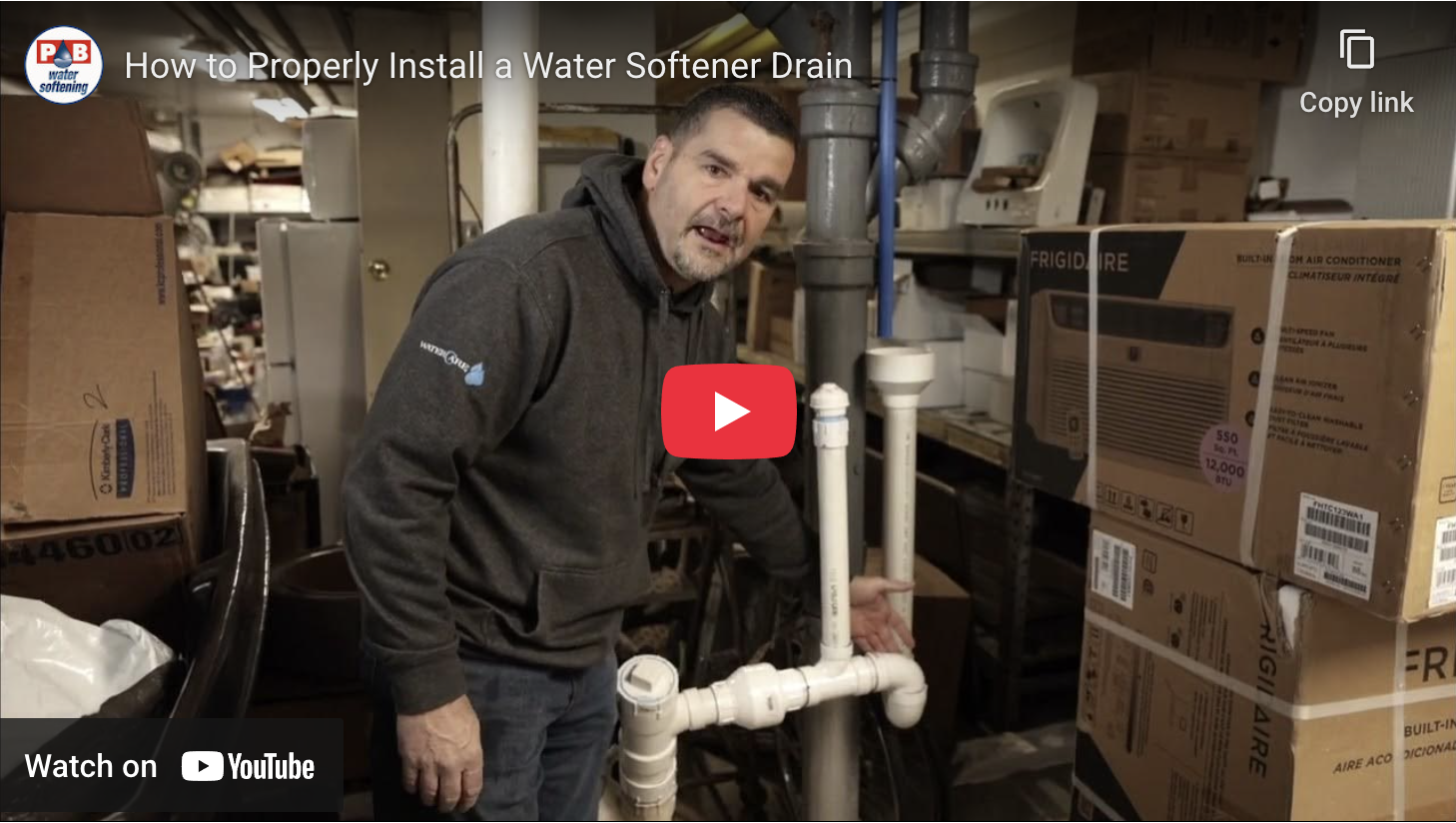
Here in the northern portion of New Jersey—specifically, Bergen and Passaic counties, we have some of the hardest water spilling out of our faucets.
First, let’s take a look at why that is then we’ll get a better understanding of how it affects your household appliances, and last, we’ll talk about how to address the issue so you’re spending less money in the long run.
What Makes The Water So Hard?
For the scientist in you, calcium and magnesium dissolved in water are the two most common minerals that make water ‘hard.’ The degree of hardness becomes greater as the calcium and magnesium content is increased and is related to the concentration of multivalent cations* dissolved in water.
Typically, in Bergen County the grains of hardness (gpg) in the water is approximately 15 gpg of hardness while in Passaic County the grains of hardness can be upwards of 20 gpg in some of those County towns. Conversely, in other parts of the country the hardness is as low as 7 gpg.
*By definition this means ions are being charged by a variety of variables.
How Is That Affecting Your Appliances?
Indications of hard water will affect almost every cleaning task from laundering and dishwashing to grooming and bathing. Within the realm of laundering, hard water will make your clothing look dingy and feel scratchy. Many of us will use fabric softeners to help, but those products eventually load up your clothes and towels with chemical residues.
Dishes and glasses will also begin to look less than new – ok, let’s just say it – grungy, after long-term exposure to hard water minerals.
If your clothing and dishes are taking a beating from the water, imagine what it is doing to the appliances that ultimately ‘clean’ these items. The calcium and magnesium deposits build up in the mechanisms of your water-bearing machines and over time, the small mechanisms and piping lines are destroyed from the laden mineral deposits.
How Much?
Once you detect a potential problem, your only solution is to bring in a repair person at about $250/hour plus parts which could ultimately cost a staggering $500-$1000 and/or as a last result, you’ll end up purchasing a replacement appliance.

A Practical Solution
Let’s do the math. If you live in your home in Passaic or Bergen County for an average of 20 years, there’s a very good chance, the hard water will necessitate your needing to replace your appliances a minimum of 3 times.
Considering the cost and installation of appliances (and the fact that they never need replacing when they’re on sale), the average amount you will spend over 20 years is about $5400 depending on the type of appliance you select. This math is based on your replacing 3 appliances, 3 times at an average cost per appliance of $600. This assumption didn’t include your corroded hot water heater or perhaps your boiler.
The permanent cost savings fix for this awful problem is a water softener. Period. In this area, not only are the recommended, they’re almost as important as the washing machine and dishwasher they are supporting.
A professionally, installed water softening system will resolve the calcium residue problem and reduce other hard ions and metals in your water. The unit is compact and the overall cost savings you will experience will be considerable when you are still enjoying the high-end appliances you purchased for your home.






